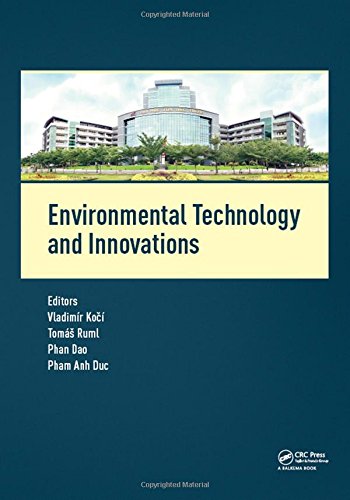

Most ebook files are in PDF format, so you can easily read them using various software such as Foxit Reader or directly on the Google Chrome browser.
Some ebook files are released by publishers in other formats such as .awz, .mobi, .epub, .fb2, etc. You may need to install specific software to read these formats on mobile/PC, such as Calibre.
Please read the tutorial at this link: https://ebookbell.com/faq
We offer FREE conversion to the popular formats you request; however, this may take some time. Therefore, right after payment, please email us, and we will try to provide the service as quickly as possible.
For some exceptional file formats or broken links (if any), please refrain from opening any disputes. Instead, email us first, and we will try to assist within a maximum of 6 hours.
EbookBell Team

5.0
110 reviewsEnvironmental Technology and Innovations contains papers presented at the International Conference on Environmental Technology and Innovations (ICETI 2016, Ho Chi Minh City, Viet Nam, 23-25 November 2016). The book covers a wide range of topics within enviromental engineering and technologies including:
• General environmental engineering
• Clean energy and sustainability
• Water and wastewater management
• Public health and environment.
The application areas range from emerging pollutants of air, soil and water environment, remediation technologies, clean energy and sustainability of biofuels, waste to energy, water and wastewater management, public health and the environment, quality and safety of food production to environmental planning and management and policies for cities and regions. The papers cover both theory and applications, and are focused on a wide range of sectors and problem areas. Integral demonstrations of the use of reliability and environmental engineering are provided in many practical applications concerning major technological approaches.
Environmental Technology and Innovations will be of interest to academics and professionals working in a wide range of industrial, governmental and academic sectors, including water and waste management, energy generation, fuel production and use, protection of natural heritage, industrial ecology, man health protection and policy making.